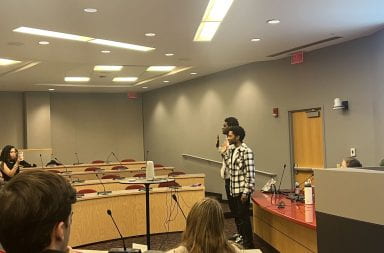A payday of at least $500 million (with a cash value of $327.4 million) should have lottery players buying up Powerball tickets.
The jackpot increased to this record high after Saturday’s drawing failed to yield any winners. The next drawing will be Wednesday evening and, according to the Powerball website, odds of winning the jackpot are 1 in 175,223,510.
The largest Powerball payout so far was a $365 million pot that went to eight co-workers in Lincoln, Neb., in 2006. The Powerball record is the highest ever recorded for the game and the second highest jackpot in lottery history, trailing only behind $656 Mega Millions prize awarded in March.
Powerball is a relatively new game in Ohio. The state added it to the lottery system in April 2010, however the game itself has been around since the late 80s, according to the game’s website.
With a large payday up for grabs, more people than normal across the state have been considering playing the game. Wanda Smith, an employee of more than three years at the Marathon gas station at 1584 Summit St., confirmed that the store has seen an increase in ticket sales.
Smith said she observed a marked increase in Powerball sales since the jackpot was announced.
“That’s quite a bit of money,” Smith said.
But who is actually buying the tickets? Even being within such close proximity to campus, local gas stations and ticket vendors might not be catering to a large student crowd.
Andrew Krumel, a third-year in civil engineering, said he “never played” the lottery, though he had heard about the Powerball Jackpot.
Krumel said even with a record-high jackpot, he was no more likely to play than he was before. Still, he could imagine what he would do with the money if he had it to spend, and said he would “buy a bunch of property” and save the rest.
Other students said with such low chances of winning, they had better things to spend their money on than a lottery ticket.
“If the prize is really that much, then everyone is going to be buying tickets,” said Jimmy Deter, a third-year in civil engineering. “So many tickets will be sold that my already slim chances will only plummet further. There’s no way I’m spending money on that instead of my beer fund.”
Kyle Banfill, a third-year in pharmaceutical sciences, agreed, and said he can think of better ways to waste his money then buying a Powerball ticket.
“If I lit my money on fire at least it would look cool while I was throwing it away,” Banfill said.
Ryan Guenther contributed to this article.


